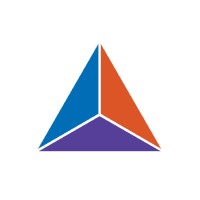DataLend says positive returns for U.S. equity indices caused less demand in the securities lending market.
 The global securities finance industry experienced a decrease in revenue for lenders in the third quarter of 2024, according to DataLend, the market data service of EquiLend.
The global securities finance industry experienced a decrease in revenue for lenders in the third quarter of 2024, according to DataLend, the market data service of EquiLend.
While the operational challenges of the shift to shorter T+1 settlement might appear to be the culprit, they did not cause these revenue dips, Nancy Allen, global head of data and analytics solutions at EquiLend, tells FTF News.
Overall, DataLend reports that the industry “generated $2.49 billion in revenue for lenders in the third quarter of 2024 … The figure represents a 6 percent decrease from the $2.65 billion generated in Q3 2023,” according to DataLend’s report.
Securities lending has been reeling from the T+1 transition in North America in large part because of time zones causing funding gaps. “Every area appears to have been more impacted than originally anticipated, from funding to headcounts, securities lending, and fail rates,” according to a recent survey from Citi Securities Services, conducted one month after North America made the shift to shorter settlement cycles. Securities lending was the most impacted as half of all Citi survey respondents had significant disruptions — up from 33 percent a year ago, as FTF News recently reported.

Nancy Allen
Despite the woes of T+1, the transition in North America did not cause the decline in average fees, particularly the 17 percent dip in U.S. equity fees, Allen says.
“While the transition of U.S. settlement to T+1 did necessitate operational changes, we do not believe that it had any significant impact on securities lending fees for U.S. securities,” Allen says.
“The overall decline in fees was largely indicative of fewer securities trading ‘Special,’ as we observed a 15 percent decline in specials revenue in Q3 year-over-year. While there are many factors that can contribute to this market dynamic, largely positive returns for major U.S. equity indices can contribute to less demand in the securities lending market,” Allen says.
In addition, the drop in interest rates did not drive down revenue, Allen says.
“Similarly, we do not believe that benchmark interest rates played a significant role in the decline in industry-wide revenues. Interest rate cuts normally lead to higher securities lending revenue in the short term. The higher revenue is primarily driven by a duration mismatch between the reinvested cash collateral and the rebate rate on the trade,” Allen says.
In other findings, DataLend reports that:
- “Global broker-to-broker activity, where broker-dealers lend and borrow securities from each other, generated an additional $653 million in revenue during Q3, a 4 percent decrease year-over-year;”
- “Regionally, equity revenue fell 11 percent in North America, 6 percent in APAC and 5 percent in EMEA compared to the same period last year. A decline in average fees was the primary driver across regions, with a 17 percent dip in U.S. equity fees representing the most impactful shift;” and
- Conversely, “global fixed income lending revenue increased by 2 percent in Q3 year-over-year. The improvement was driven by a 14 percent increase in sovereign debt lending performance, with U.S. debt lending revenue climbing 11 percent on the back of increased balances. Fixed income fees declined across the board as the U.S. Federal Reserve shifted into a rate-cutting cycle in September.”
DataLend also reports that in September 2024, “the global securities finance industry generated $817 million in revenue for lenders. The figure represents a 7 percent increase year-over-year from the $767 million generated in September 2023.”
The market data service notes that “the increase was largely driven by increased lending revenue for U.S. securities, with equities improving 21 percent and government debt rising 24 percent over 2023.”
“Broker-to-broker activity totaled an additional $213 million in revenue in September, a 4 percent increase year-over-year,” according to DataLend.
The top five earners in September 2024 — a group that generated $77 million in revenue for the month — were:
- Sirius XM Holdings (SIRI US);
- S. Treasury Bond 4.125 percent 15/08/44 (US912810UD80);
- Tempus AI Inc. (TEM US);
- Cassava Sciences Inc. (SAVA US); and
- Beyond Meat Inc. (BYND US).
 DataLend is part of EquiLend’s Data & Analytics Solutions group. EquiLend also offers trading, post-trade, regulatory technology, and platform solutions for the securities finance industry.
DataLend is part of EquiLend’s Data & Analytics Solutions group. EquiLend also offers trading, post-trade, regulatory technology, and platform solutions for the securities finance industry.
Private equity firm Welsh, Carson, Anderson & Stowe (WCAS) completed its majority acquisition of EquiLend early last month.
Need a Reprint?